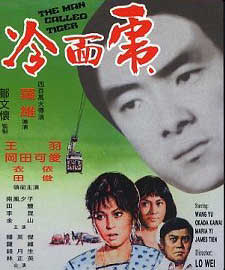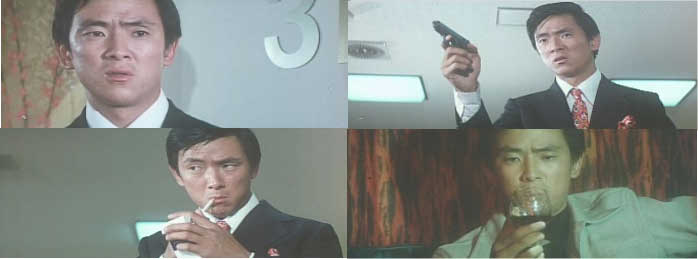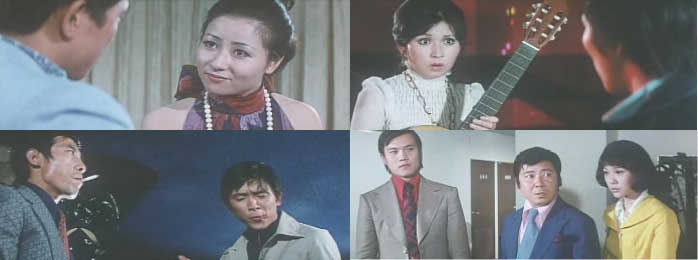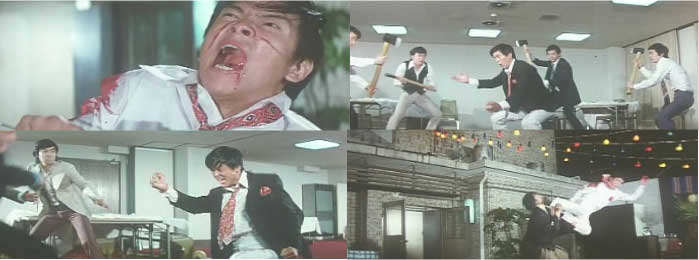A Man Called Tiger

Director: Lo Wei
Year: 1973
Lo Wei and Jimmy Wang Yu team up again with Golden
Harvest for A Man Called Tiger. Lo Wei was becoming quite the jetsetter with
The Tattooed Dragon (1973) taking place in Thailand, Slaughter in San Francisco
(1974) being located in San Francisco (duh) and this one being set in Kyoto,
Japan (though there is very little Japanese flavor on screen and much of
the film could have been shot in Hong Kong). I have to backtrack on a comment
I made for my review of The Tattooed Dragon in which I said these early Lo
Wei films for Golden Harvest felt like a long ways from his work for the
Shaw Brothers. A Man Called Tiger in fact could very easily be mistaken for
a Shaw Brothers production – particularly mystery/espionage films like Interpol,
Black Falcon or Madam Slender Plum. It has many of those contemporary setting
Shaw calling cards – nightclubs, gangsters, easy women, musical numbers,
gamblers, tight blue suits and a tight lipped protagonist.

In this case, the most tight lipped of actors – Jimmy Wang Yu who rarely
cracks a smile in any of his films. He has always struck me as a Chinese
Jean-Paul Belmondo without the Gallic charm or really charm of any sort –
constantly sour, surly, grim and implacable and in nearly every film I have
seen him in he is out for blood and he inevitably gets it – often by the
bucket load. In this film he portrays Chin Fu who has come to Kyoto to find
out who is responsible for the suicide of his father – supposedly due to
losing all of his money gambling but Chin Fu knows his old man never gambled.
He quickly mixes it up with the Shimizu gang when the chief enforcer (Han
Ying Chieh – also doubling here as the action director) pushes around a young
female singer Ayako (Okada Kawai) for “dues” owed to the gang. After smacking
them around a few times he is invited by the gang boss to join them as his
right hand man and Chin accepts as this gets him in on the inside.

He suspects that the people behind his father’s death are the Yamamoto gang
– chief rivals to Shimizu and headed by the fish-eyed Yamamoto (Tein Feng).
The film soon falls into a steady drumbeat of escalating fights and women
falling for him – first his landlady, then Yamamoto’s girl (Maria Yi Yi –
who had appeared in two Bruce Lee films but who married in 1974 and vanished
from the jade screen) and a couple others who often make goo-goo eyes at
him. It must be the blue suits. Near the end a big gambling powwow occurs
with Lo Wei showing up with a giant cigar in one hand and a petite young
babe in the other. Fast moving with a confusing amount of characters and
missing fathers and a fight about every ten minutes makes this an enjoyable
slick romp.

The VCD is widescreen, fairly clean picture, hard
to read subs at times but overall not bad.

My rating for this film: 7.0





